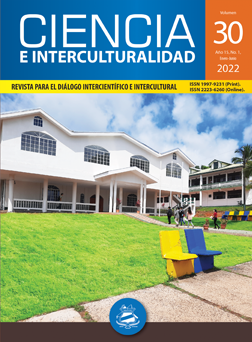Prostitutas en Tegucigalpa y Comayagüela (1935-1936): una aproximación desde la historia social
DOI:
https://doi.org/10.5377/rci.v30i01.14262Palabras clave:
prostitución, obreros, Estado, policía, higienismoResumen
La década de 1930 significó el inicio de la penetración femenina en la vida pública de Honduras, al surgir los movimientos sufragistas y de protesta contra el Estado, los cuales en 1955 ganaron los derechos ciudadanos de las mujeres. Entre los colectivos de mujeres, las trabajadoras sexuales son un grupo usualmente ignorado por la historiografía nacional, relegadas al estatus de agrupación subalterna cuyas prácticas inmorales han tenido que ser reguladas por un benevolente Estado. En el presente artículo se ha puesto de manifiesto el papel que las prostitutas jugaban en la sociedad de la Honduras de la década de 1930, con un enfoque en su rol como trabajadoras sexuales en una economía y Estado que les era adverso. Para este propósito se han utilizado datos del Registro de Identificación publicado por el Departamento de Investigación de la Policía Nacional en la Revista de Policía, con una periodización de 1935 a 1936. A partir de la información se discute el trabajo y el estilo de vida de las prostitutas, colocándolas como agentes activos -aunque perseguidas y discriminadas- en la sociedad hondureña. El procesamiento de datos ha sido realizado cuantitativamente, mientras que su análisis ha seguido las propuestas de la historia social
Descargas
13031
HTML 3235
EPUB 109
XML 146
resumen audio 105
Abstract (English) 108
Descargas
Publicado
Cómo citar
Número
Sección
Licencia

Esta obra está bajo una licencia internacional Creative Commons Atribución-NoComercial-SinDerivadas 4.0.
Copyright © (URACCAN)

Esta revista está bajo una licencia de Creative Commons Reconocimiento-NoComercial-SinObraDerivada 4.0 Internacional. Esta licencia permite que otros puedan descargar las obras y compartirlas con otras personas, siempre que se reconozca su autoría, pero no se pueden cambiar de ninguna manera ni se pueden utilizar comercialmente.




